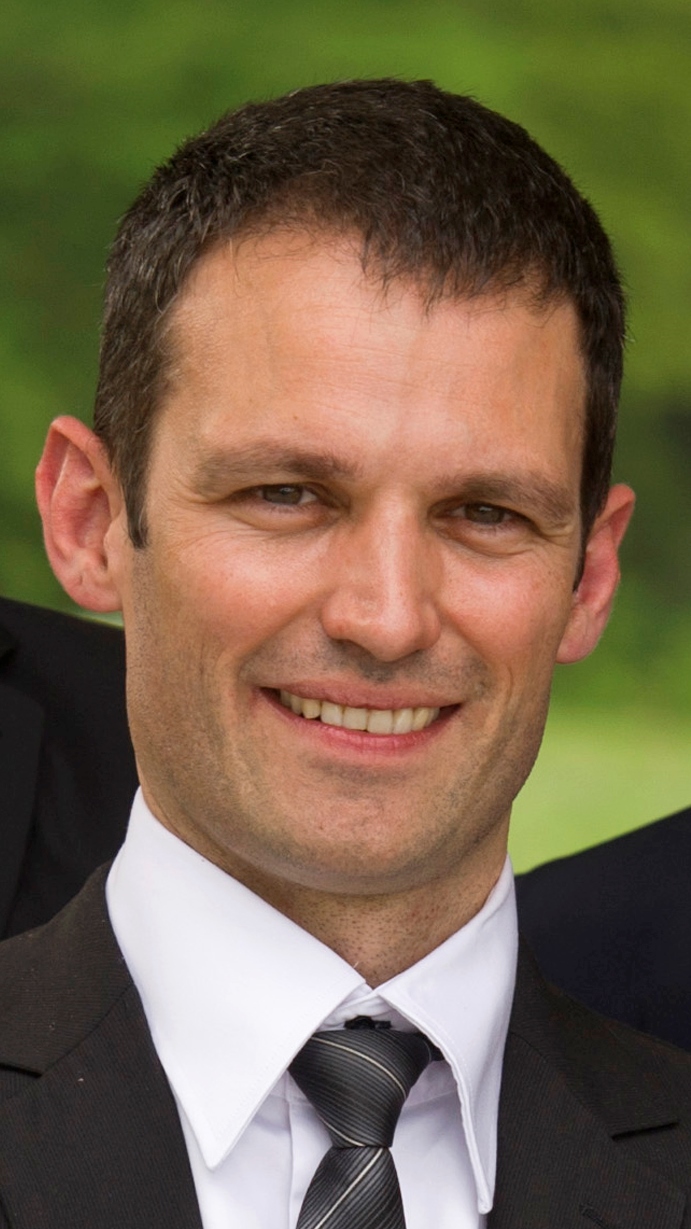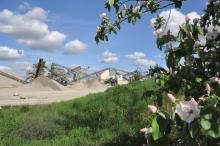
UEPG, the European Aggregates Association, has members in 27 countries, representing the largest non-energy extractive industry in Europe, producing 2.7 billion tonnes of aggregates per year, at 25.000 extraction sites, operated by over 16.000 companies (mostly SMEs).
The key priorities of UEPG are ensuring sustainable access to primary local resources through promoting the compatibility of aggregates extraction with biodiversity, aiming for the recognition of land-use for extraction to be an activity of public interest and water management. As one of the few sectors represented among major actors on the EU biodiversity policy, the European Aggregates Industry is now widely recognised as a trusted partner in biodiversity by EU Institutions and a growing number of NGOs.
Aggregates extraction is not only compatible with biodiversity, but has the potential to create it.
One of the most important missions of UEPG is to assist its Members in achieving responsible aggregates extraction and promoting its compatibility with biodiversity and nature protection. In that context, UEPG collected more than 150 biodiversity cases studies (available on the UEPG website) and has published a leaflet demonstrating how the extraction of aggregates can create high-value habitats before, during and after extraction.
In fact, although pits and quarries, by their very specificities can be natural biodiversity havens, an ad-hoc management, such as a Biodiversity Management Plan, helps creating new habitats and attracts pioneer species. It is essential, in that framework, to raise staff awareness and to train them on simple behaviours (for instance no disturbance during breeding season) that will help biodiversity to blossom.
In that aim, UEPG has a dedicated Task Force on Biodiversity, focusing its efforts towards promoting the compatibility between the Aggregates Industry and nature protection. In view of the above mentioned observations and the development of biodiversity management plans, the Task Force developed biodiversity indicators to measure the contribution of the aggregates industry and its SMEs to nature. The Task Force is closely monitoring ecological offsets and other initiatives related to financing nature (including the European Commission Business@Biodiversity Platform). In fact, a number of Natura 2000 areas have been designated on former extraction sites. It should be recognised that aggregates producing companies already invest millions of Euros annually in environmental restoration and management, and can make a net contribution to biodiversity and ecosystems. Furthermore, UEPG promotes a particular innovative concept, developped by the Belgian and Dutch Aggregates Producers Associations, introducing the approach of ‘Temporary Nature’ and Dynamic Management of Biodiversity. This concept would allow EU legislation to have a more flexible approach and demonstrate that biodiversity and economic activity can go hand-in-hand.
The UEPG Biodiversity Task Force is chaired by Benoit Lussis, environmental advisor at FEDiEX, the Belgian Aggregates Producers Association. He is an expert on sustainable development, land-use planning, extractive waste management and biodiversity among the pioneers developing the concept of ‘Temporary Nature’ and putting it into practice through the “LIFE in Quarries” project, co-funded by the European Commission LIFE Programme.
LIFE in Quarries
The objective of the ‘LIFE in Quarries’ project is to develop, manage and maintain the hosting capacity of biodiversity of active quarries in Belgium. The originality of the project is to anticipate the implementation of biodiversity management measures during the extraction period in order to maximize stable and biodiversity-rich ecosystems in post-exploitation phase.
New approaches will be developed based on a dynamic management of nature where a network of temporary habitats is managed dynamically in time and space across the quarry in parallel with the extractive activity, ensuring a constant availability of suitable habitats for the development of biodiversity. The ‘LIFE in Quarries’ project will demonstrate that operational solutions for biodiversity can be proposed and implemented through limited investments benefiting both stakeholders interested in nature and the private sector.
Under the Birds and Habitats (Natura 2000) Directives and of their Regional translation in the Decree on Nature Conservation, quarries are legally bound to ask for derogations when impacts concern protected species or habitats. In this context, the ‘LIFE in Quarries’ project aims at proposing a method to reconcile pioneer nature and legal constraints. The project’s first phase focused on identifying lock-in situations and legal obstacles through a comparative analysis of the current legislation and ways of derogations in Wallonia and other countries where this thematic area has been approached. The adoption of sustainability agreements will then be promoted between individual quarries and the Walloon authorities responsible of derogations to serve as a legal guarantee in exchange for additional nature efforts. The end goal would be to create room for more flexibility in the way derogations are designed and find a way to comply with the wording of the EU Birds and Habitats Directive.
Aggregates extraction is part of the solution
Henceforth, UEPG members are convinced that responsible aggregates production is compatible with a favorable conservation status of habitat types and species. The UEPG Biodiversity Task Force aims at developing further the innovative concept of ‘Temporary Nature’ with the exchange of good practice between national associations. In that respect, initiatives aiming at producing new soft law may help to show that aggregates extraction is part of the solution, a partner in Biodiversity management. We believe the vast network of aggregates extraction sites can contribute to make a difference.
For more information visit





